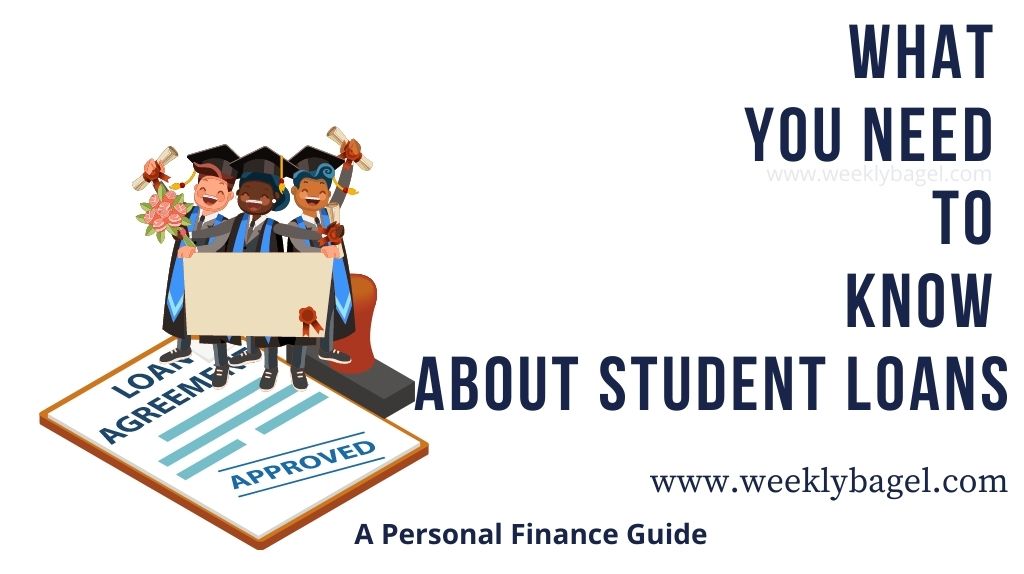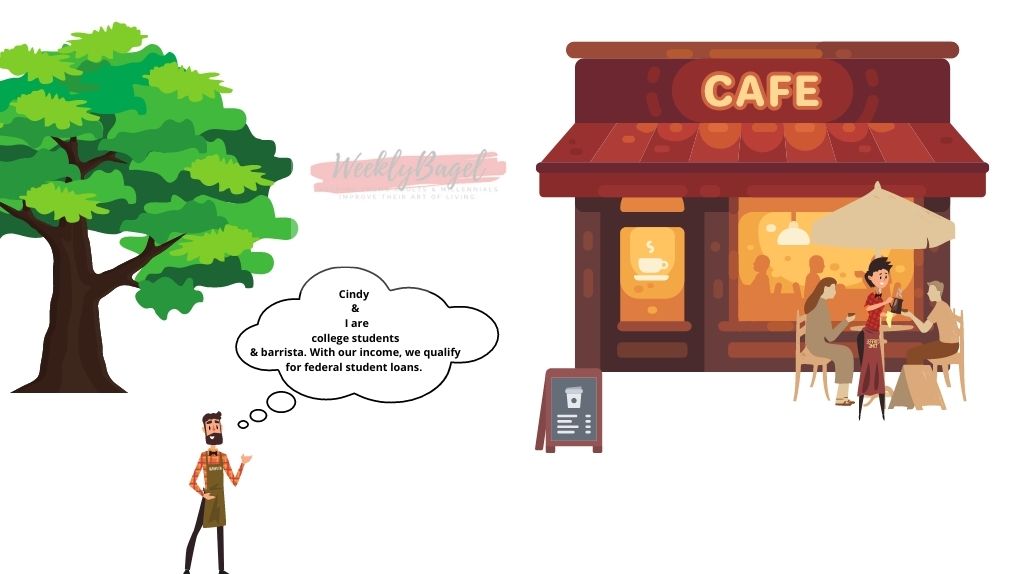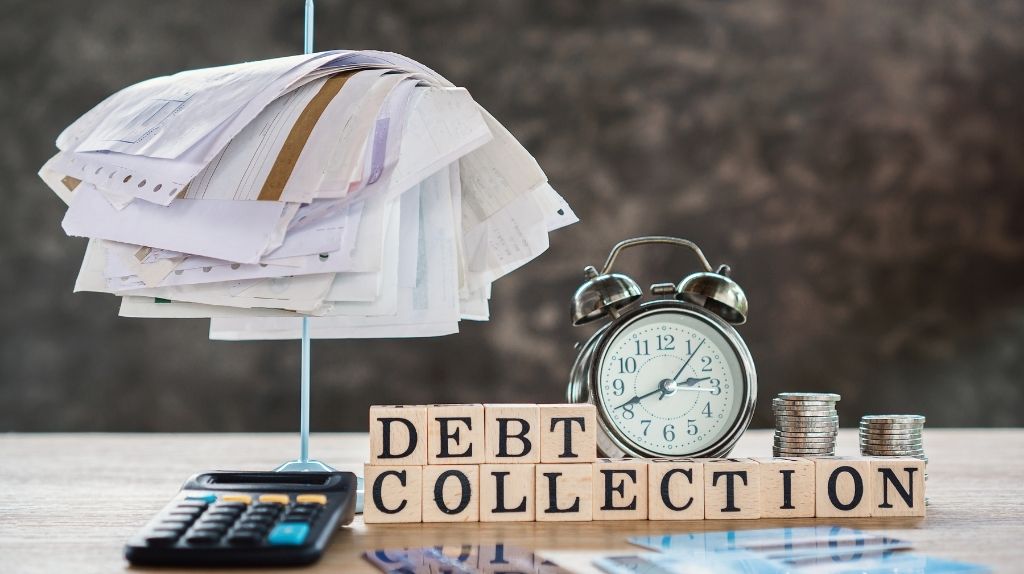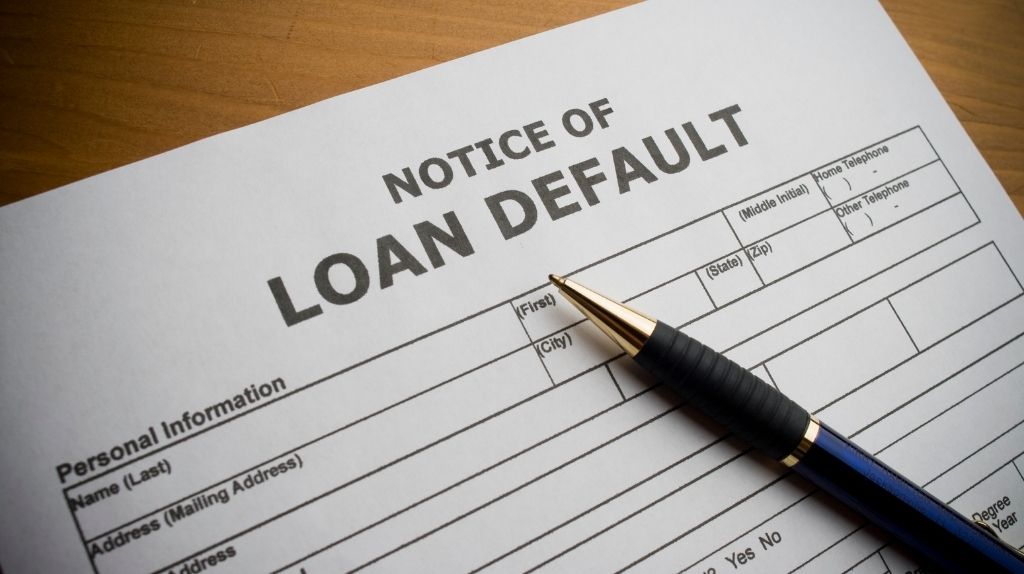
College debt is a determent for many aspiring students. This is because of the enormous debt you can incur from receiving a college education. At least, this is the case in the United States.
Education Data Initiative puts the average debt to be $37, 693 for college students. This is what the average cost of a full four year college education though. In addition, this average debt depends on the type of college and student loan used for such an education.
For Federal student loans, the debt is about $20, 000 less than the debt accumulated using a private student loans. In fact, private student loans cost an average of $54, 921 as compared to the federal student loan debt average of $36, 510. If you asked me, no wonder young adults are discouraged from attending colleges.
But, do not let this deter you yet.
I know at this point in your life, you are either in college or about to go into one. If you do not know much about student loans, you can fall prey to predatory loans with high interest rates. A majority which can render your future earning potential insignificant, since it will constantly eat into monthly salary.
According to Education Data Initiative, about 50% of students still have about $20, 000 left in student loan repayment after 20 years. In this article, I will explain what you need to know about student loans so you can either graduate debt-free or with a healthy student loan debt.
What To Know Before Using A Student Loan?
Since you have questions about student loan debts. Here are answers to questions you may have about applying for one.
1. How Do You Get A College Loan?
Colleges have something called a financial aid office. It is responsible for providing a series of college loan resources available for students. Notably, college student loans are classified into three groups. You have the federal, the state and the private student loans.
Federal Student Loans
Federal student loans are provided by the federal government. There are three types of federal student loans. Namely:
- Direct Subsidized Loans: These are for eligible students who can demonstrate immediate financial needs. As of July 2021, the interest rate on this loan is 3.73%. But, the United States federal government pays this interest for you, while you are in college. At least, until six months after graduation.
- Direct Unsubsidized Loans: This type of loan does not require financial needs for qualifications. It comes with an 3.73% for undergraduates and 5.28% for postgraduates students. Finally, you are responsible for paying the interest and loan after borrowing it.
- Direct Plus: This type of loans is for student- undergraduates or postgraduates, who need additional financial help despite the getting one of the first two federal loans. To get this one, your credit has to be good. Its interest rate is 6.28%.
To sum up, the interest rates on these three types of federal loans are current for July 2021 to July 2022. The direct subsidized and unsubsidized loans have the best interest rates for any student loan out there.
All payments are owed to the US Department Of Education. To apply for these federal student loans, click here to complete the Free Application for Federal Student Aid (FAFSA) form.
Private Student Loans
There are bank loans for college students. Each financial institution has its own repayment, deferment and interest options. With that said, my advice for you is to go for a reputable student-oriented bank with low interest and good deferment program.
Getting a federal student loan is the best option out of them all. Especially, the fact one type lets you go to college without paying interest until after graduation. It is important to check whether you are eligible for each though.
2. Who Is Responsible For Paying Back Student Loans?
When you qualify for student loans, you own the student loan debts. As a borrower, you are responsible for making sure you repay back your loans. Even if you drop out of college before graduation.
This is why you need to know which student loan is best for you.
Your child or your parents are not responsible for your college debts. What I mean by this is the debt will not transfer to them when you are unable to make repayments. Hence, why you need to let your college creditor know if there is ever a change in your financial circumstances.
In the event you are unable to pay as a result of illness, dropout, disability or job loss, your creditor can either suspend or create a loan deferment plan for you. Moreover, this is why it is important to go for federal college loans rather than private loans.
The US Department of Education has programs in place to handle such circumstances. In case of disability, there is a loan forgiveness for disabled people. Otherwise, there are many student loan forgiveness programs for professional graduates.
3. How Much You Can Borrow In Student Loans
The amount you can borrow as a college student depends immensely on the type of student loan you have applied. Usually, the federal student loans are based on income plans. What this means is your annual salary and dependence level determine how much you will get.
To elaborate.

A young college adult making $18, 000 annually, is likely to get up to $5, 500 for direct subsidized student loan annually. Furthermore, such an adult can qualify up to $20, 500 annually for the direct unsubsidized loan. However, your college is the one who determines how much you can get based on the income evidence you submit to them.
When I went to college, I did not apply for financial aid during my Associate degree program in the community colleges. In fact, I graduated debt-free in the community college for my first and second degrees. But, once you transfer to the university to get a Bachelor’s degree, it is different ball game.
For more vital information on Federal student loans, here is a summarized document from US Department Of Education on everything you need to know about student loans.
4. What Disqualifies You From Getting A Student Loan?
To qualify for any loan at all, you have to meet some requirements. Especially, private student loans from banks and college-oriented financial institutions. Mostly for such institutions, your credit history has to be in good standing to get a loan with a reasonable interest rate.
Otherwise, you will not be able to get a private loan. Or worse, get one with a crazy high interest rate. Now, remember you are responsible for paying the interest and loan of private student loans while you are in college. Therefore, it is important to have a good credit history before applying for such a loan.
Although this is the case for private student loan, it is different with federal student loans. Regardless of your credit history, you can get a federal student loan as long as you abide by its conditions. With that said, here are a list of what could disqualify you from getting a student loan.
- Your annual Income
- Not meeting the required academic hours
- Previous student loan fraud
- Owing some balance as a result of dropout
- Change in US residential status
- Crime Conviction
In addition to these factors, your apply can be denied when you are not registered to US Selective Service. You know, the one where US residents have to swear an oath to be called into service to defend our country against invasion home or abroad.
Why am I mentioning this to you, my dear reader?
Well, I had a friend back in college who got denied a scholarship because he did not sign for selective service. You can miss a lot of free student financial packages from the federal government as a result. Therefore, I encourage you to sign up prior to application. You can register at US Selective Service System.
5. When Do You Get Your First Student Loan?
Well, this depends on whether you are a first-time borrower or not. If you are a first-time borrower, it takes about 30 days from the day you enrolled to get your student loan. This is according to the Federal Student Aid website.
Even after 30 days, your federal student loans may not be release to you unless you complete a requirement. As a first-time borrower, you are required to attend an entrance counseling session with your school’s financial aid office. To complete one online, click on Complete Your Student Loan Entrance Counseling Requirement to begin.
Once you meet this requirement, your student loan will be released to you. Otherwise, it takes about 1 to 2 weeks to get your federal student loans. For private student loans, it depends on the financial institution. And, it differs from institution to institution.
How Do You Pay Back Federal Student Loans?
Here are some answers to questions about loan repayment for federal student loans. Here, I focus on federal student loans because repayment for private loans differs from lender to lender. But, federal student loan repayment barely changes.
1. How Fast Should You Pay Off Your Student Loans?
Repayment for subsidized student loans after graduation, begins when your six months grace period are over. Then, you are expected to pay your debt back to the US Department Of Education. Usually, the federal student loan debt is handed over to a loan servicer to collect.
You will be contacted, after the grace period by the collector. So, how long does it take to pay student loans?

It depends on a number of factors. Such factors include the amount borrowed, future earning potential, interest rate and repayment arrangement. Education Initiative Data Organization says it takes an average of 20 years to pay off student loan debt.
Luckily for you, the US Department Of Education is willing to work with you after graduation to set up a fair repayment procedure. Moreover, they are willing to defer, cancel or forgive your student loan in case of serious problems which limit earning potential.
Finally, you can legally get out of paying back student loans. I wrote some practical steps on what to do. You can read the article.
2. How Long Are Student Loans Deferred?
In case of emergencies- national or personal, your student loan debt repayment can be deferred. This is seen with the suspension of student loan repayment with the COVID-19 pandemic around. Or, Biden’s cancellation of student loans for disabled students.
Besides this situation, your loan servicer can work with you to defer your repayment for a period of time. If you have difficulties paying back after that, they can work with you to arrange a loan repayment plan. Usually, you can ask them for income-driven repayment plan since it can seriously lower your average monthly payment on a student loan debt.
If you have any questions about student loan repayment deferment, please contact your loan servicer. They have the resources to help you out. Above all, they can defer your repayment if your situation is very serious.
If not, you will go into a loan default. A loan default occurs when you stop making payments on your student loans. This could lead to severe financial consequences such as a damaged credit history and higher interest rates. Here is how to get out of a student loan default.
3. How Do You Qualify For Student Loan Forgiveness?
What most young college students do not know, is the federal government can forgive student loans. To put it differently, you do not have to pay back the amount you borrowed for your college education. Interesting, is it not?
Well, there are some conditions to getting your student loans forgiven. In fact, not every college graduate will get his or her loan forgiven. You have to be in certain majors to achieve this feat.
For example,
There are medical student forgiveness programs which can pay off all your student debt. In return, you get to serve the federal government in areas with limited health professional staff. These programs allow you to work for a few years for them to clear all your student debts. Usually, it takes two to three years since some of the programs will contribute about $35, 000 to $100, 000 annually on your student debt.
This is while you are getting paid to work in such areas.
In the same fashion, the US Department Of Education can forgive your student loan debt after twenty years with an income-driven repayment plan. Moreover, there are student loan debt discharge for teachers, bankruptcy, closed school and other situations. Visit Student Aid Office Loan Forgiveness Program for more information.
4. Does Student Loans Affect Credit Score?

Yes, student loans can help or hurt your credit score. As a matter of fact, a default student loan can stay on your credit history for seven years. By the way, a loan is said to be in default when you fail to make payment in agreed time.
It can ruin your credit history, good reader. You do not want it all.
Hence, why you have to reach out to your loan servicer in case of repayment difficulties. They can arrange a lower payment based on your income as an alternative. If not, they can defer your loan debt. It depends on your circumstance, but always reach out before your student loan repayment becomes default.
Having said that, these are what you need to know about student loans before you apply. I hope this helps your student journey. One more thing?
Share this article to help other students like I just helped you. Good luck, my good reader!




 How To Save Money On Coffee Every Morning
How To Save Money On Coffee Every Morning